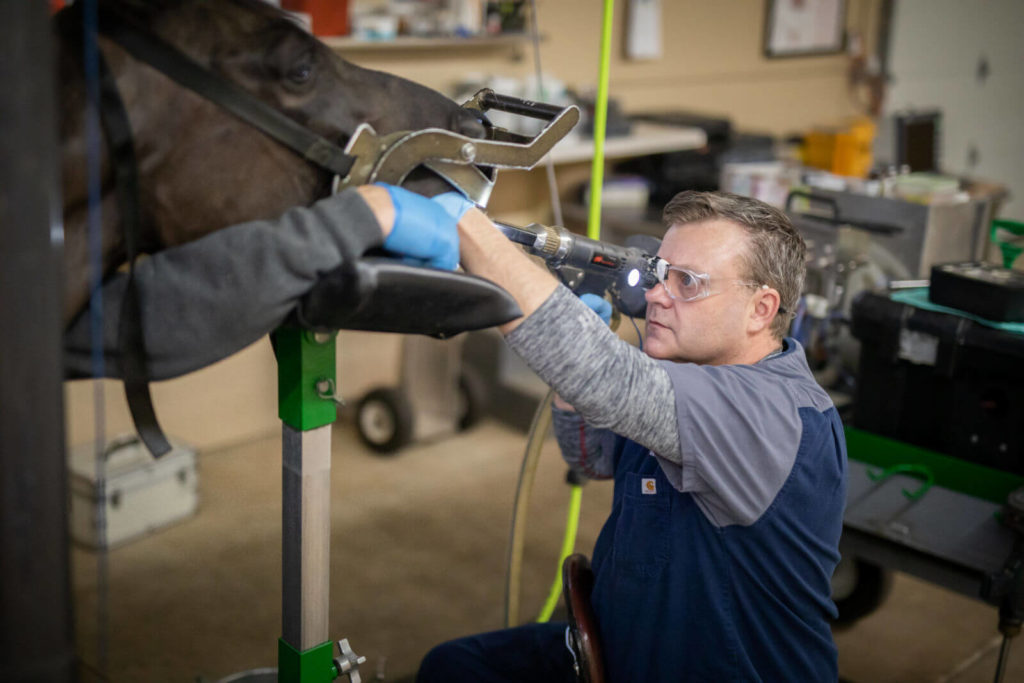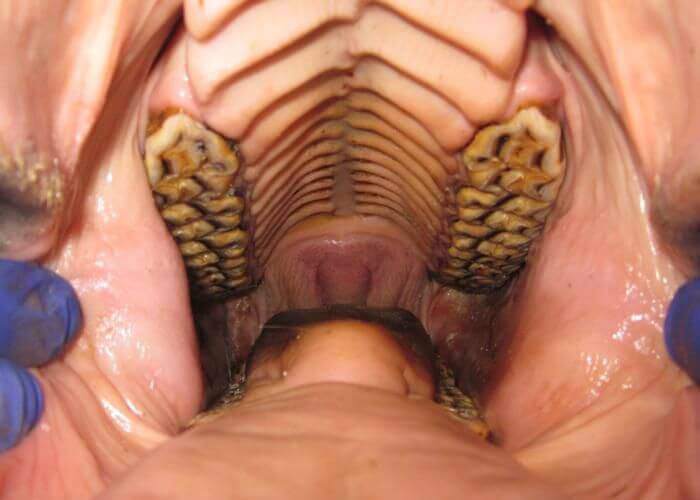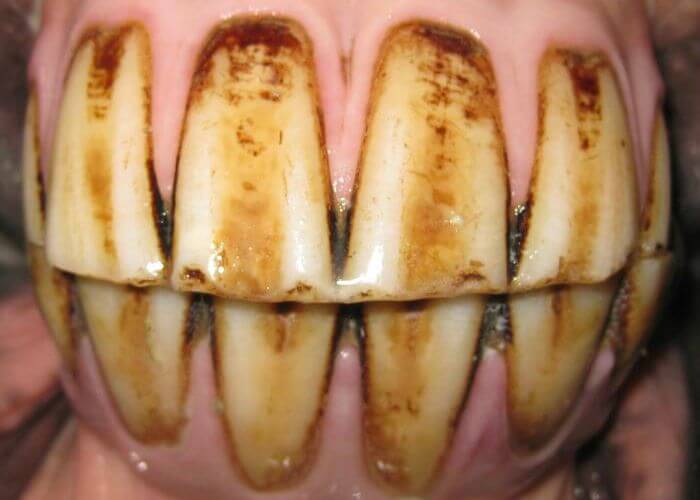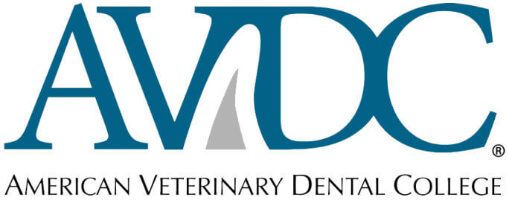
Exceptional Care
Our Board Certified Veterinary Dentists™ provide an array of equine dentistry services
Horses need routine dental care, not only to remove sharp points that occur normally in their mouths, but to look for and assess any potential abnormalities that could be causing them discomfort or more serious problems.
Regular exams identify issues early on
It used to be believed that routine dentistry or a routine “float” was needed simply to remove the sharp points that horses normally make. We strongly believe that this is not the complete picture when it comes to your horse’s oral health. Removal of sharp points is only one component to good preventative dental care.
One of the most important parts of good dental care is a thorough oral exam. The basis of our dental care program is a five-component oral exam that will help us recognize and evaluate any oral problems your horse may have, including cavities (decay to teeth), fractured teeth, periodontal (gum) disease, oral soft tissue injuries, or a tooth root abcess or infection.
The five components to this exam involve evaluating the external face, oral soft tissues, occlusion, periodontal status, and endodontic status of the teeth. Once this exam has been performed, we can properly proceed with the occlusal adjustment (float or removal of sharp points) which will bring your horse’s mouth into proper balance and optimize its chewing function.
If we diagnose any further problems on the oral exam, we may recommend further diagnostics if necessary, and discuss appropriate treatment options to help restore good oral health.
Equine Dentistry Services
Routine Dentistry
A good, thorough dental exam should be done at least once a year for most adult horses. For some horses, we recommend dental work to be done every six (6) months.
Restoration & Endodontics
Similar to people, horses can experience tooth decay. This can cause cavities or exposure to the vital portion of the tooth, the pulp, which may potentially lead to the fracturing and/or other problems.
Oral Surgery
Midwest Veterinary Dental Services offers both basic and advanced extraction services, as well as performing sinus surgeries on those horses that need them.
Periodontics
Horses can get periodontal disease, also known as gum disease. This may occur for various reasons. Equine teeth are unique in that they continuously erupt into the mouth.
Young Horse Dentistry
Dental examinations should begin at birth. When your foal receives its first wellness examination at birth, a brief dental exam should be performed at that time.
EOTRH Syndrome
Equine Odontoclastic Tooth Resorption and Hypercementosis, also known as EOTRH, is a syndrome in horses that results in resorptive lesions of the incisors and sometimes canine teeth.
Request an equine appointment
If you would like to make an appointment with Midwest Veterinary Dental Services, please visit the request page and fill out the form so we may have your information for scheduling purposes. We usually book out 4-6 weeks for appointments.
Routine Dentistry
Restoration & Endodontics
Oral Surgery
Periodontics
Young Horse Dentistry




